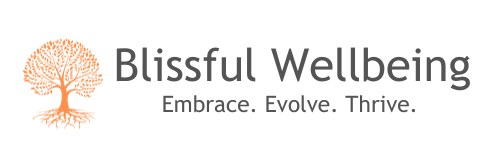
Introduction to Mindfulness
Mindfulness, a transformative practice that transcends the boundaries of mere relaxation techniques, is your passport to inner peace and personal metamorphosis. In today’s whirlwind of a world, where distractions seem to lurk at every corner, and stress has become a constant companion, mindfulness beckons you to rediscover the beauty of living in the moment. In this blog post, we will explore 5 Simple Steps to Unlock the Power of Mindfulness.
At its core, mindfulness is the art of being fully present in the moment. It’s the profound act of acknowledging your thoughts, feelings, and surroundings without the weight of judgment. This momentous practice has gained immense significance in our lives, for it’s the cornerstone of unlocking the power within.
Imagine it as a gateway to a deeper connection with yourself and the world around you. It’s an invitation to traverse the landscapes of your mind, explore the labyrinth of your emotions, and forge an unbreakable bond with the world as you perceive it.
Table of Contents
ToggleMindfulness: A Way of Life
But make no mistake; mindfulness isn’t just a practice; it’s a way of life. It’s a philosophy that permeates your existence, shaping your perception and responses to the world around you. At its essence, mindfulness beckons you to become acutely aware of the intricate tapestry of thoughts that crisscross your mind.
In a world that encourages constant motion and noise, it encourages you to find stillness within the chaos. It invites you to observe, without judgment, the ceaseless stream of thoughts that flow through your consciousness. By doing so, you unveil a profound connection with your inner self that has the potential to unearth a treasure trove of personal growth and self-discovery.
The Science Behind Mindfulness: A Deeper Dive
Delving into the science behind mindfulness reveals a captivating intersection between psychology and neurology. It’s here where the profound impact of mindfulness on our psychological and neurological well-being becomes evident.
Imagine for a moment that your brain is like a dynamic landscape, with each thought, emotion, and experience shaping its contours. Studies have shown that regular mindfulness practice acts as the master sculptor, subtly chiseling away to create new neural pathways. The brain’s neuroplasticity ensures that changes are possible, especially in areas associated with attention, memory, and emotional regulation.
In the realm of psychology, mindfulness emerges as a formidable tool for managing stress and enhancing mental health. It equips individuals with the resilience necessary to navigate the complexities of their inner thoughts and emotions. The act of mindfulness allows one to confront these intricate landscapes with grace, cultivating emotional equilibrium in the process.
Moreover, when we peer into the neurological effects of mindfulness, the revelations are nothing short of remarkable. It’s akin to discovering the wellspring of cognitive rejuvenation, where gray matter in the brain experiences a significant boost. These profound neurological changes translate into enhanced cognitive functions and heightened emotional well-being.
In essence, mindfulness isn’t merely a practice or a passing trend; it’s a doorway to a deeper understanding of oneself and the world. It’s the fusion of science and art, offering profound insights into the human mind and the transformative power that resides within.
In this age of constant motion and ceaseless noise, mindfulness stands as an oasis of stillness, guiding individuals towards a journey of self-discovery, emotional resilience, and cognitive rejuvenation. It offers not just a path to personal transformation but a profound revelation of the limitless potential that lies within each of us. As you embark on your mindfulness journey, remember that the power to transform your life is within your grasp, waiting to be unlocked through the simple yet profound practice of mindfulness. Welcome to the world of mindfulness, where the present moment is your canvas, and personal transformation is your masterpiece.
5 Simple Steps to Unlock the Power of Mindfulness
Step 1: Cultivating Awareness
The inception of your mindfulness journey revolves around the concept of cultivating awareness. It’s the cornerstone, the very foundation upon which personal transformation rests. In this profound step, you embark on a journey of self-discovery, diving deep into the intricacies of your thoughts, emotions, and physical sensations.
Cultivating awareness isn’t merely passive observation; it’s active participation in your own mental landscape. It involves the art of being fully present in the moment, allowing your senses to converge on the here and now. At the heart of this practice lies the ability to observe without judgment. As you sit in quiet contemplation, you watch your thoughts, emotions, and physical sensations ebb and flow like a river. The essence is not to dissect or criticize these inner experiences but to acknowledge them and let them pass, like leaves drifting in a stream.
As you continue this practice, a remarkable transformation takes place. Your awareness deepens, as does your understanding of your internal world. This heightened self-awareness is the key that unlocks the doors to personal transformation. By knowing oneself on a deeper level, you gain the power to effect change and growth.
Step 2: Embracing the Present Moment
In a world that tantalizes with distractions and tugs at your attention from every corner, embracing the present moment becomes a revolutionary act. It’s an essential step in the practice of mindfulness, as it is the gateway to stillness in a world that never ceases to move.
Being present means, in its simplest form, immersing yourself completely in the here and now. It’s the act of divesting your thoughts from the past, unburdening your mind from the weight of the future, and surrendering to the beauty of the present moment.
To embrace the present, engage your senses fully. Let your awareness dance through the intricate details of your surroundings, savor the flavors of your food, feel the earth beneath your feet, and relish the sensations that your body offers. In these moments of pure presence, you create a mental sanctuary, a place where worries and anxieties find no room to dwell.
Step 3: Managing Stress and Anxiety
The ubiquity of stress and anxiety in our lives calls for an essential skill: learning to manage these common companions on the path to personal transformation. Mindfulness, with its unwavering presence and active observation, becomes a powerful antidote to the tumultuous waves of stress and anxiety.
The practice of mindfulness is an arsenal of tools, each designed to dismantle the fortress of stress and anxiety. Techniques like deep breathing and meditation act as tranquilizers for the nervous system, soothing the fires of stress hormone production. The mere act of acknowledging stress and anxiety, without the bias of judgment, renders you capable of responding with a calm and composed demeanor.
By embracing mindfulness, you equip yourself to confront the challenges of life with a heightened sense of emotional resilience. The storms may still come, but you’ll be the captain of your ship, navigating the waves with grace and poise.
Step 4: Enhancing Emotional Intelligence
Emotional intelligence, the art of recognizing, understanding, and managing your emotions and those of others, is the jewel in the crown of personal growth. Mindfulness plays a pivotal role in this art, as it elevates your emotional awareness to new heights.
Through mindfulness, you begin to unfurl the layers of your emotional landscape. You witness the emotions as they bloom within you, and you keenly discern the triggers that set them in motion. As this awareness deepens, you gain the power to exert greater control over your emotional responses.
With heightened emotional intelligence, you emerge as a master of empathy and compassion. Mindfulness fine-tunes your emotional radar, allowing you to perceive the emotions of others with remarkable clarity. You navigate the intricate maze of human emotions with grace, fostering healthier relationships and facilitating personal growth.
Step 5: Nurturing Self-Compassion
Self-compassion, the art of treating yourself with the same kindness and care that you would offer to a beloved friend, is the cornerstone of personal transformation. It’s the gentle rain that nurtures the seeds of growth within.
Mindfulness serves as the catalyst for self-compassion by teaching you to observe your inner dialogue without judgment. Instead of the harsh, self-critical voices that often plague our minds, mindfulness encourages understanding and forgiveness. It’s the act of embracing your imperfections and learning from your mistakes.
As you nurture self-compassion, a profound transformation takes place. Harsh self-criticism gives way to a more positive self-image and a renewed sense of self-worth. Through mindfulness, you learn to extend the same care, love, and understanding to yourself that you would readily offer to a dear friend. This nurturing self-compassion becomes the fertile soil in which personal transformation takes root and blossoms.
These five steps, interwoven with the fabric of mindfulness, offer not just a journey but a transformative odyssey. Through the practice of cultivating awareness, embracing the present moment, managing stress and anxiety, enhancing emotional intelligence, and nurturing self-compassion, you embark on an expedition of self-discovery and personal growth. It’s a journey that unfolds within, a journey where you are both the traveler and the destination, and where the destination is a more profound, resilient, and compassionate self.
Mindfulness in Daily Life
Incorporating mindfulness into your daily life is not limited to meditation sessions. It involves integrating the principles of mindfulness into your everyday activities. Whether you’re eating, walking, or working, mindfulness can enhance the quality of your experiences.
Start by choosing one daily activity to approach mindfully. For example, while eating, savor each bite, noticing the taste, texture, and aroma of your food. As you walk, pay attention to the sensations in your body and the environment around you. These simple practices gradually infuse mindfulness into your daily routine, leading to a more fulfilling and transformative life.

Mindfulness Meditation and Techniques
Mindfulness meditation is a formal practice that involves dedicating time to focus your attention on the present moment. It’s a cornerstone of mindfulness, and there are various techniques to explore.
- Breath Awareness: One of the most accessible forms of meditation is focusing on your breath. In this practice, you pay attention to the sensation of your breath entering and leaving your body. If your mind wanders, gently redirect your focus to your breath.
- Body Scan: This technique involves mentally scanning your body, starting from your toes and moving upward. It helps you become aware of physical sensations, tension, and areas of relaxation.
- Loving-Kindness Meditation: Also known as “Metta” meditation, this practice involves generating feelings of love and compassion for yourself and others. You repeat positive affirmations or phrases to cultivate these emotions.
- Mindfulness of Thoughts: In this technique, you observe your thoughts as they arise without attachment or judgment. It allows you to distance yourself from your thoughts and view them objectively.
Experiment with these techniques to find the one that resonates with you and supports your journey of personal transformation.
The Role of Mindfulness in Relationships
Mindfulness not only benefits your personal growth but also has a positive impact on your relationships. By being fully present in your interactions, you can deepen your connections with others. Here’s how mindfulness enhances your relationships:
- Active Listening: Mindfulness enables you to listen more attentively, understanding the perspectives and feelings of others without judgment.
- Empathy: Being in the present moment allows you to empathize with the emotions and experiences of those around you.
- Reduced Reactivity: Mindfulness helps you respond to situations calmly rather than reacting impulsively, reducing conflicts and misunderstandings.
By bringing mindfulness into your relationships, you can foster understanding, trust, and deeper connections with others.
Mindfulness for Personal Growth
Personal growth is a continuous journey, and mindfulness is your trusted companion on this path. It empowers you to:
- Set Clear Intentions: Mindfulness helps you clarify your values and intentions, guiding you towards your goals.
- Overcome Limiting Beliefs: By observing your thoughts without judgment, you can identify and challenge limiting beliefs that may hinder your personal growth.
- Increase Self-Awareness: Through mindfulness, you become more attuned to your strengths and areas for improvement, facilitating personal development.
- Manage Time and Prioritize Goals: Mindfulness aids in time management and prioritization, allowing you to focus on what truly matters.

Mindfulness and Health: Body and Mind Connection
The mind-body connection is a fundamental aspect of mindfulness. Your mental well-being directly influences your physical health. Mindfulness practices have been associated with various health benefits, including:
- Stress Reduction: Mindfulness reduces stress, which can alleviate stress-related physical health issues.
- Pain Management: Mindfulness has been used as a complementary technique for pain management and coping with chronic illnesses.
- Better Sleep: By calming the mind and reducing anxiety, mindfulness can improve the quality of your sleep.
- Improved Immune Function: Some studies suggest that mindfulness practices can enhance the immune system’s functioning.
By taking care of your mental well-being through mindfulness, you’re also contributing to your overall health and vitality.
Overcoming Common Challenges in Mindfulness Practice
While mindfulness offers numerous benefits, it’s not without its challenges. Common obstacles include restlessness, impatience, and an overactive mind. Here are some strategies to overcome these challenges:
- Start Small: Begin with short mindfulness sessions and gradually increase their duration as you become more comfortable.
- Consistency: Regular practice is key. Set aside dedicated time each day for mindfulness to build your habit.
- Non-Judgment: Avoid self-criticism if your mind wanders during meditation. Simply acknowledge the distraction and refocus.
- Guidance: Consider using guided mindfulness meditations or apps to support your practice.
Mindfulness for Stressful Times
Life can present challenges that test your emotional resilience. Mindfulness equips you with tools to navigate these difficult moments. During stressful times, remember these mindfulness principles:
- Breathe: Inhale deeply and exhale slowly to calm your nervous system.
- Acceptance: Accept the present moment, acknowledging that it’s temporary and will pass.
- Self-Compassion: Be kind to yourself, recognizing that it’s okay to feel stress and anxiety.
- Focus on the Now: Instead of dwelling on the future, concentrate on the present moment and the actions you can take.

Conclusion: The Transformative Power of Mindfulness
In conclusion, mindfulness is a powerful tool for personal transformation. Through its practice, you cultivate awareness, embrace the present moment, manage stress and anxiety, enhance emotional intelligence, and nurture self-compassion. Mindfulness isn’t limited to formal meditation but can be seamlessly integrated into your daily life, influencing your relationships, personal growth, and overall health.
The journey of mindfulness is not without challenges, but with consistent practice and self-compassion, you can overcome them. Mindfulness is a beacon of light in stressful times, guiding you toward a state of inner peace and profound personal transformation. As you embark on your mindfulness journey, remember that the power to transform your life is within you, waiting to be unlocked through the simple yet profound practice of mindfulness. Start your journey today and witness the positive changes it brings to your life.
Share This Post With Your Loved Ones!
Related Articles:






